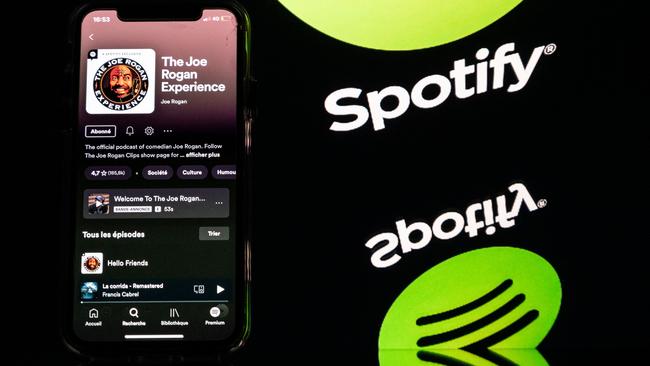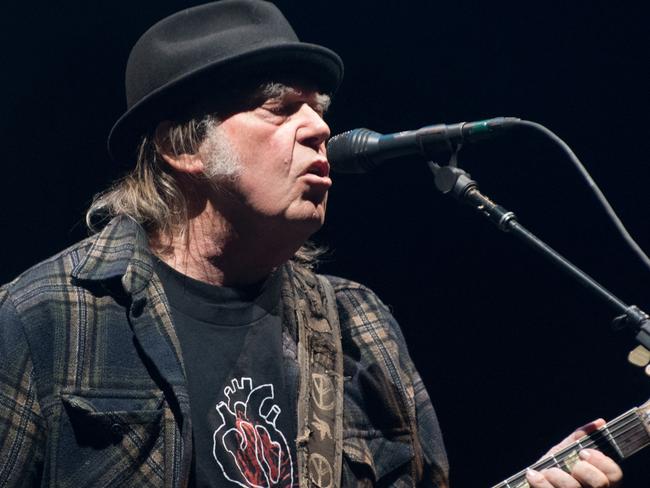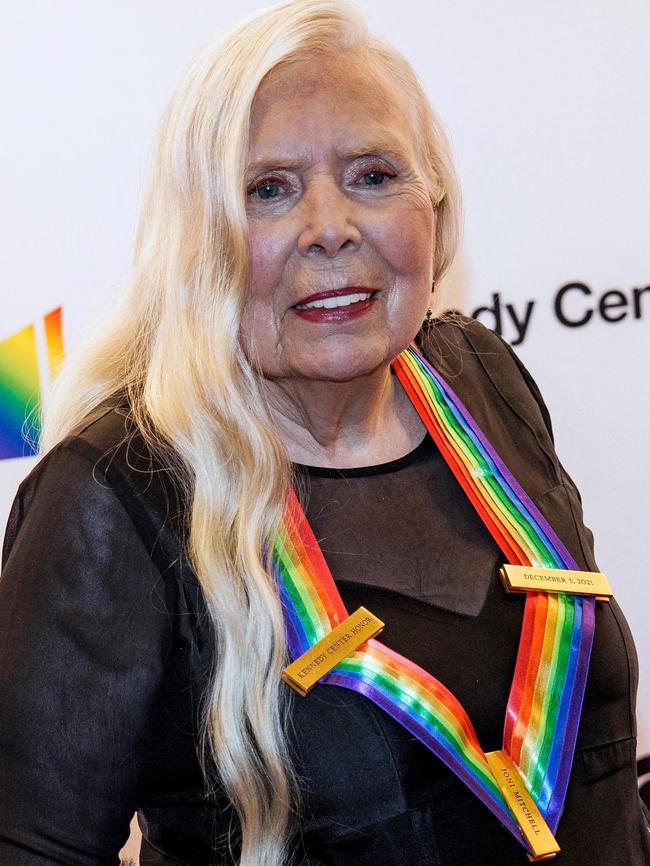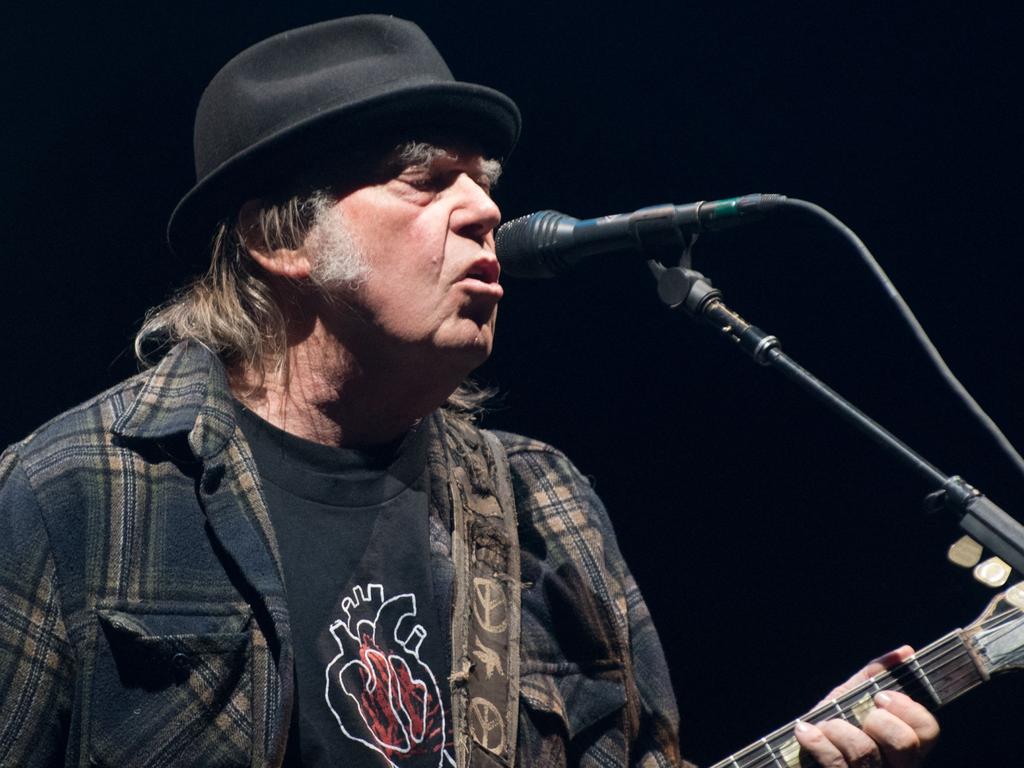Spotify and Rogan the real adults

Neil Young found a way to remind you he exists. So did Joni Mitchell. These children of the 1960s may not recall the spirit of the Berkeley free speech movement, but they do the era’s sanctimony, with their ultimatum to Spotify to stop streaming their music if it continues to host the antic, disobedient podcast of comedian and actor Joe Rogan.
Only in stereotype are the elderly sweet and meek, at least other than when hulked over by someone disturbingly youthful and vigorous.

Judge Richard Posner in his book on ageing and human nature noted that older people, less dependent on “transacting with others,” actually have less reason than younger people to conceal their obnoxiousness. How much more so two superstars approaching their 80s with a lifetime of royalties in the bank.
And yet the story is turning out better than we might have hoped. On receiving their demand, Spotify obliged them by removing their tunes while also acknowledging a responsibility for the occasionally regrettable content of Rogan’s podcast.
Rogan apologised for not policing himself or his guests better, acknowledging that his freewheeling talkathons did not always adhere to high standards of accuracy or good sense.
This was reasonable all round. In the platform vs publisher debate, Spotify is clearly a publisher because it paid a reported $US100m ($141m) to distribute his podcasts exclusively.
Rogan understands the difference too. He was willing, instead of prating about free speech, to meet his commercial partner halfway in the impossible work of making everyone happy.

This was grown-up behaviour, and good to see. Rogan, demonstrating Judge Posner’s point, went out of his way to declare himself a fan of Young’s music.
If more evidence was needed that moral panics have endings as well as beginnings, Twitter, under questioning from CNN, admitted this week it had stopped censoring what it regards as lies about the presidential race.
“The 2020 US election is not only certified, but President Biden has been in office for more than a year,” a spokesperson explained, implying that censorship would be avoided except in the social media equivalent of shouting fire in a crowded theatre.
Utopians might wish it were otherwise, but there is no way to censor lies without censoring the truth. You do only damage by trying. This is a thing that civil libertarians once understood.
Progressives trust themselves to distinguish truth from lies, even though they demonstrably fail when the lie serves their interests. They live by the judgment: “I am a thinking person. You are not. You are an algorithm programmed by society. I, as a superior person, must make sure you are programmed with the correct thoughts.”
Fear is their real power. If you don’t see how often corporate and individual obeisances to the ESG litany are driven by fear rather than conviction, you aren’t paying attention.
You also aren’t paying attention if you haven’t noticed how progressives are conveniently ready to stipulate that defending somebody’s right to speak is tantamount to agreeing with them.
Rogan’s existence ought to make you feel better about our society, though. His success speaks to a desire by his large audience for contradictory, dissenting, off-kilter, even absurd views.
Audiences seek controversy not just to open their minds, not just to annoy their betters, but because to hear impertinent, unapproved talk feels like freedom.

It’s worth a whole other column, and unfortunately a lengthy one, to disentangle the magical thinking of Covid ideology, which got Rogan in trouble in the first place. Let’s be satisfied with an example. All through Monday evening’s show, National Public Radio teased a segment about school parents who — get this — are both pro-vaccine and anti-mask. Heads explode, as if masks and vaccines aren’t different tools with different uses. Somehow they have to be regarded as ideological totems and embraced as a package.
The flight of liberal writers to Substack and other non-mainstream venues in the Covid-19 era is often misinterpreted: It’s not because they’ve had a conservative awakening. They are simply repulsed by such NPR-style stupidity.
A final point about Covid ideology. The allegation most repeated against Rogan is that he has been soft on the need of healthy young people to seek vaccination.
Though Young and Mitchell are Canadian by birth, they are perhaps fully naturalised in the attitude, manifested by $US100 trillion in US unfunded liability for Social Security and Medicare, that there’s nothing the young don’t owe the old.
Yes, there are many counterexamples, including many readers of my age who emailed me early in the pandemic to complain that the lockdowns were blighting the prospects of their teenage and 20-something children. But the predatory intergenerational layer of Covid ideology is real and worth mentioning too.
The Wall Street Journal





